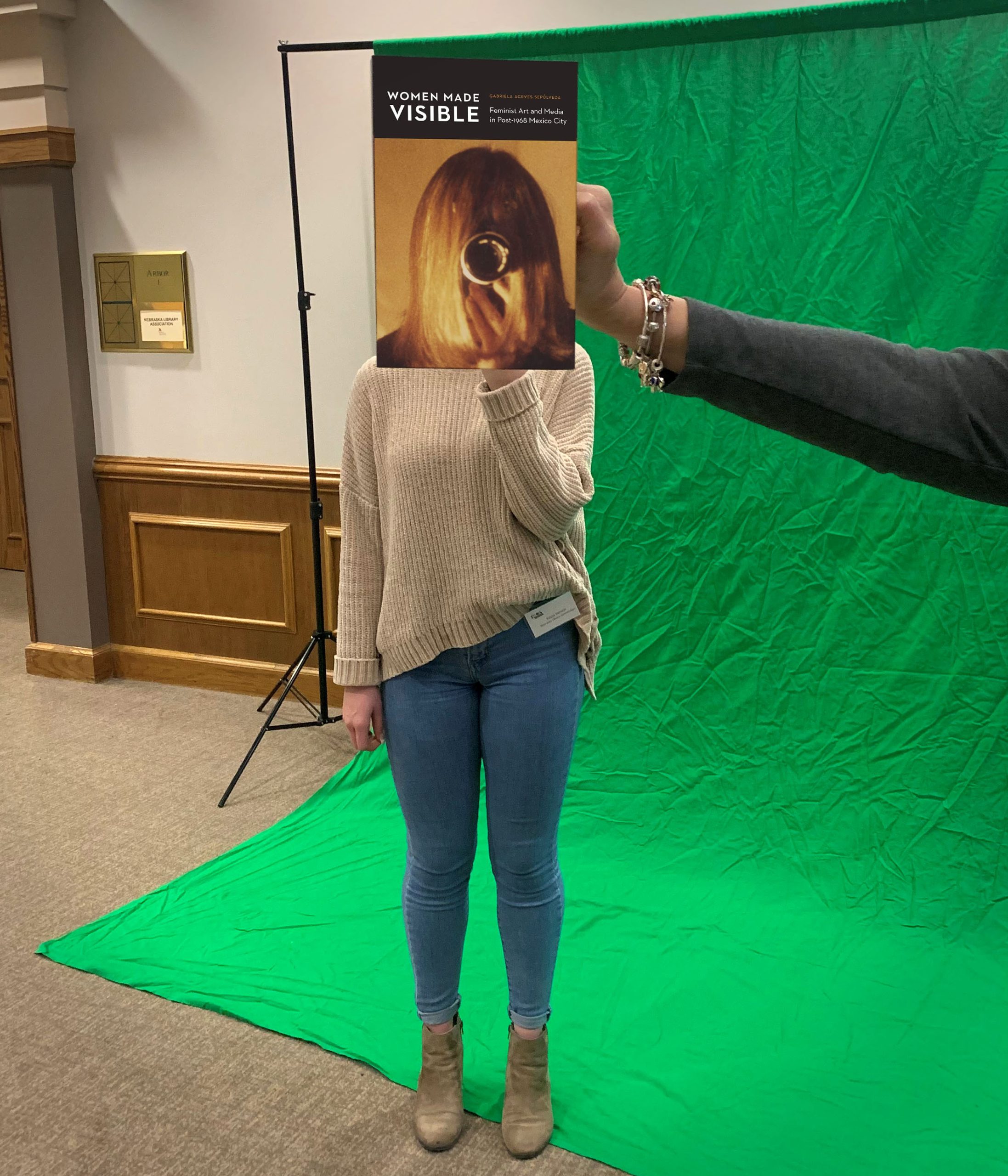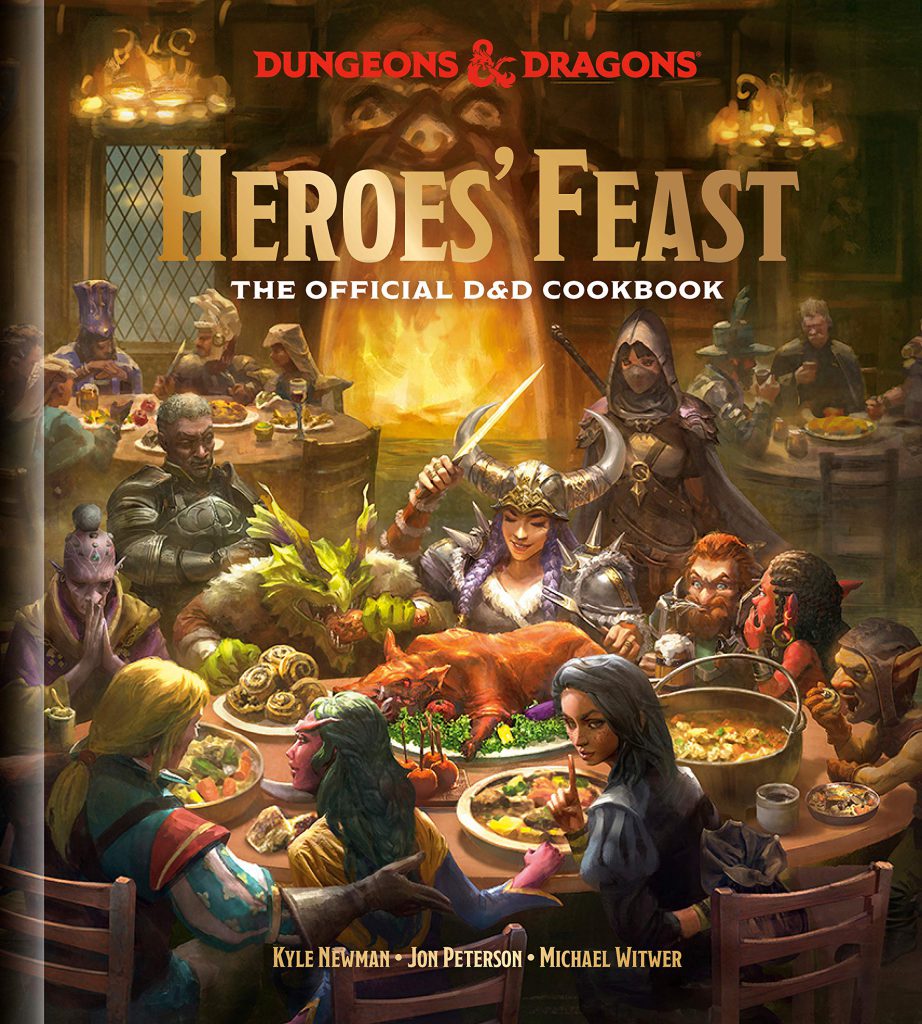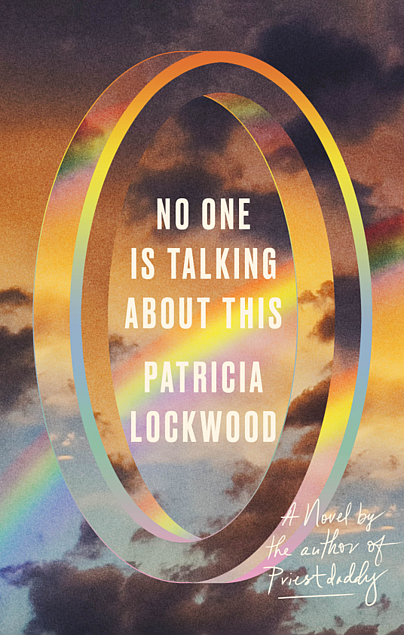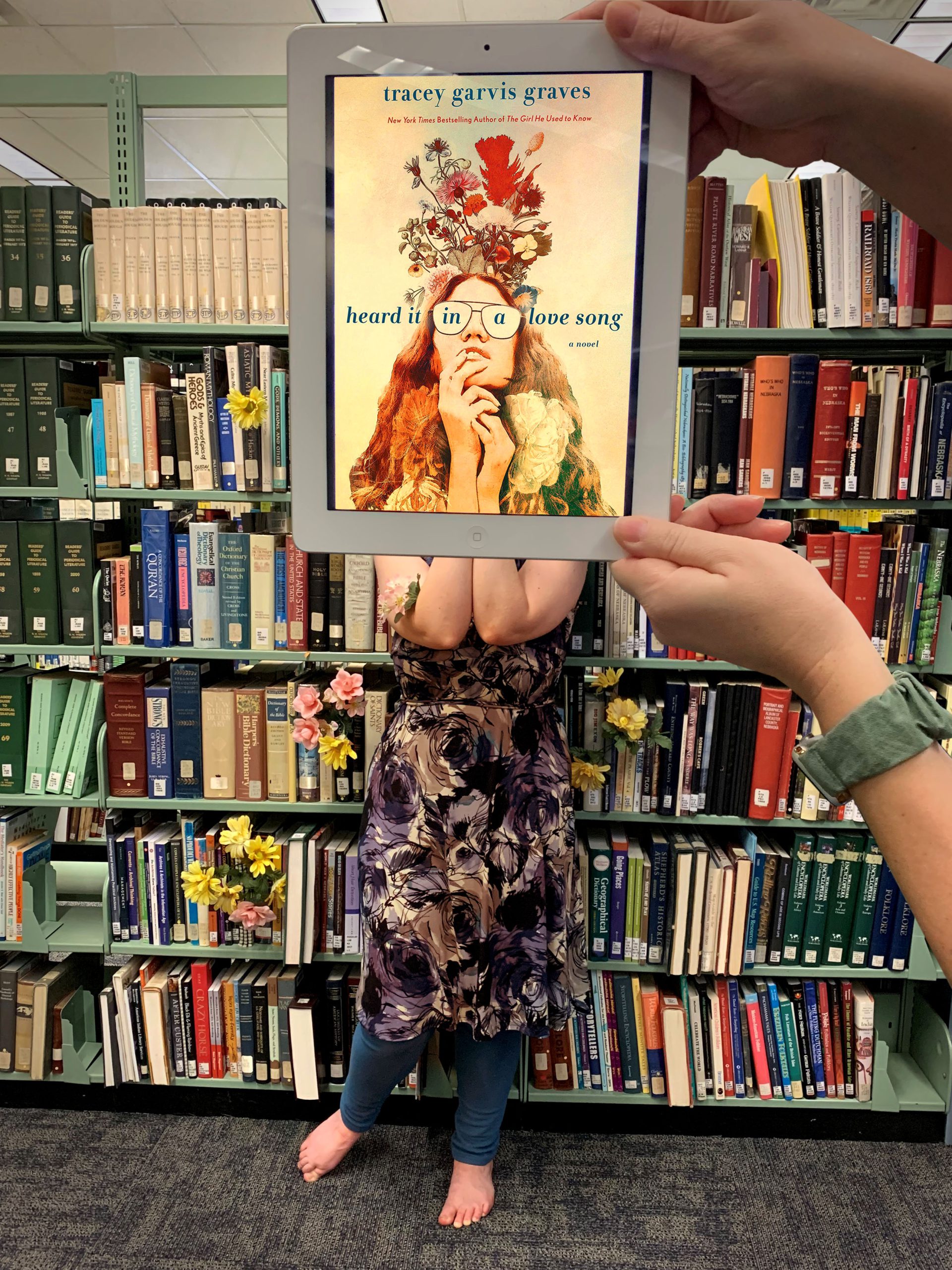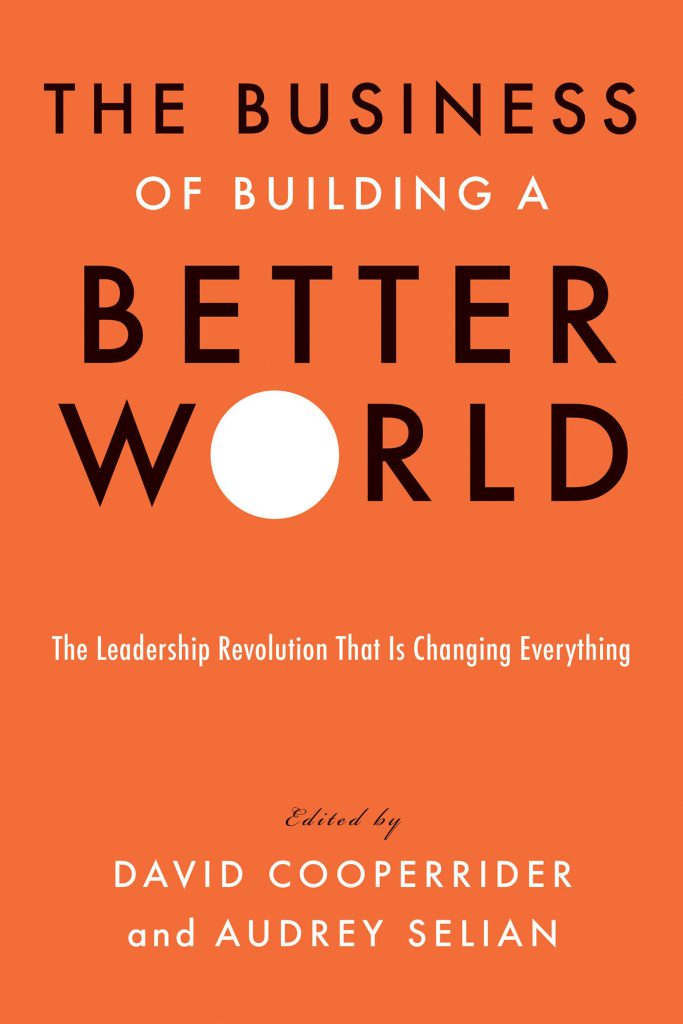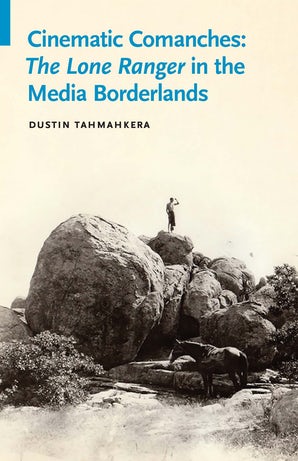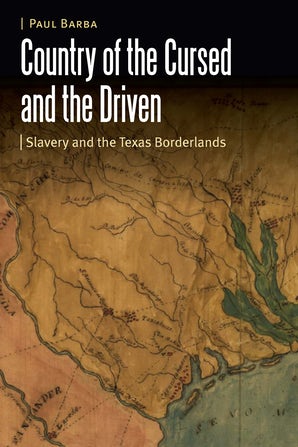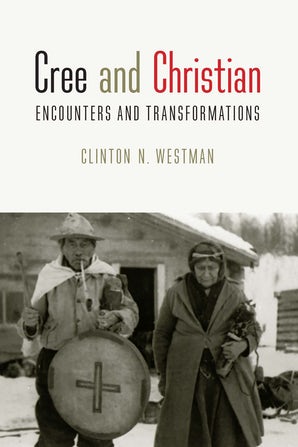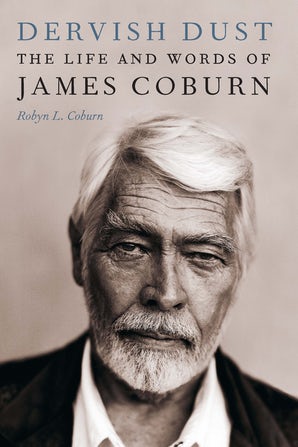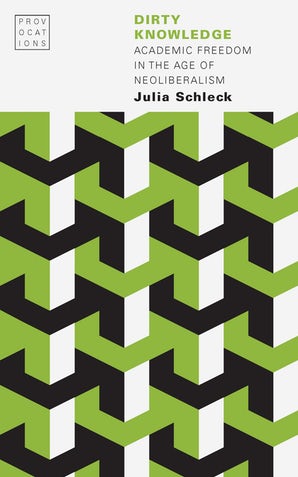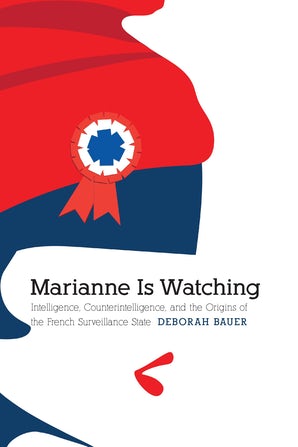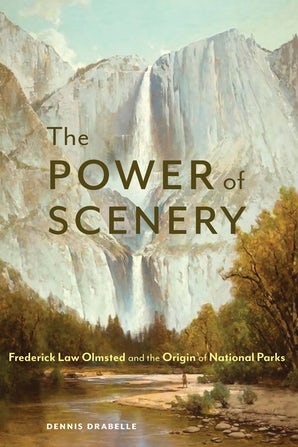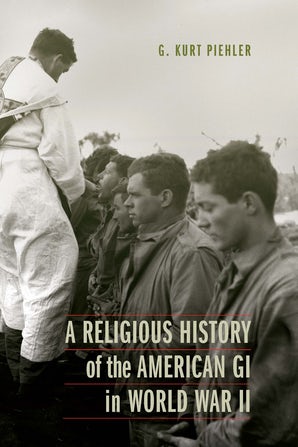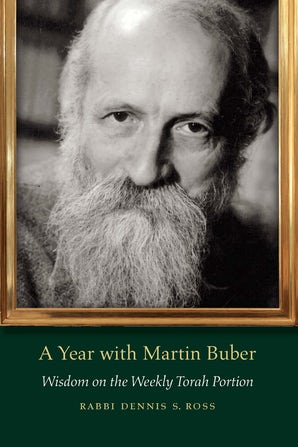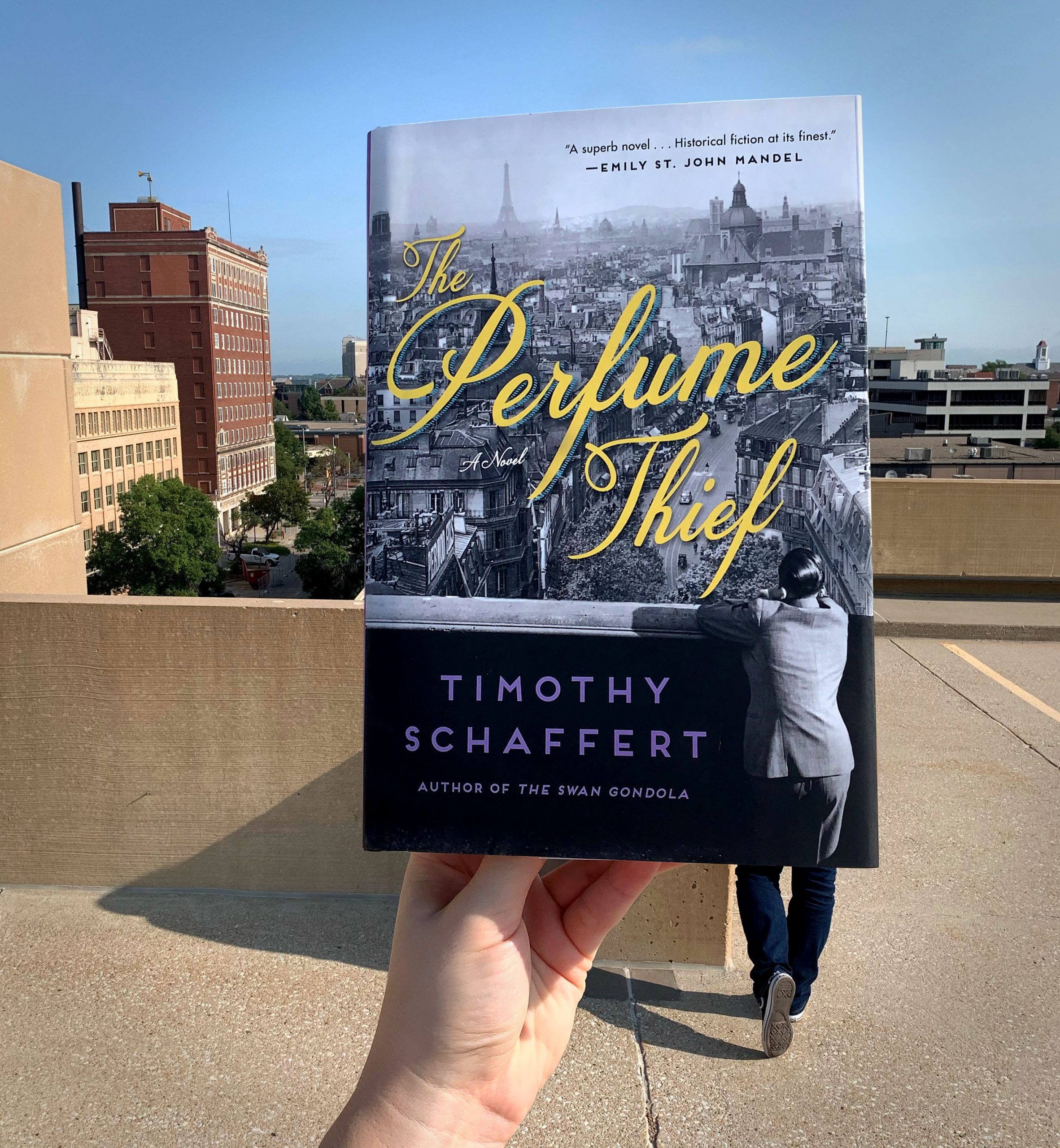Search the Blog
Categories
- Books & Reading
- Broadband Buzz
- Census
- Education & Training
- Friday Reads
- General
- Grants
- Information Resources
- Library Management
- Nebraska Center for the Book
- Nebraska Libraries on the Web
- Nebraska Memories
- Now hiring @ your library
- Preservation
- Pretty Sweet Tech
- Programming
- Public Library Boards of Trustees
- Public Relations
- Talking Book & Braille Service (TBBS)
- Technology
- Uncategorized
- What's Up Doc / Govdocs
- Youth Services
Archives
Subscribe
Category Archives: Books & Reading
Friday Reads: Woke Up This Morning: The Definitive Oral History of the Sopranos
There are very few guys (even the pacifists), if they are really being honest with themselves, who would disagree with the notion that at least sometimes they think or wish they could handle disputes like they do on The Sopranos. Very few. And by stating this reality, I’m not saying that those individuals actually would; I’m just saying they wish they could. Argument with some Putz at the store? Traffic road rage? Disagreement at work? Who doesn’t daydream about handling such disputes in the same fashion that Furio Giunta would? There are also other examples besides the “Furio way” that an average Joe might imagine he could handle conflict resolution, of course. Cliff Booth from Once Upon a Time in Hollywood most certainly comes to mind as such a role model. The point is not the ultra-violent acts, but rather the calmness and confidence that accompanies the action. Now, enough of this tangent, let’s get to the book.
Many of you may have at least heard of Talking Sopranos, a podcast started by actors Michael Imperioli (Christopher Moltisanti) and Steve Shirripa (Bobby Baccalieri), and this book (Woke Up This Morning) is basically the condensed highlights version of the podcast. If you don’t want to take the time to wade through each of the podcasts, I’d recommend this book. Easy to read and entertaining. Frequent guests on the podcast include the series actors, writers, set designers, and others that worked on the show’s production. Some quick highlights:
- Steve Shirripa is not nearly as big as Bobby Baccalieri. He wore a fat suit for most episodes, and during the show was actually about the same size as James Gandolfini (Tony Soprano). Around 230 pounds. Ginny Sack (played by Denise Borino-Quinn) also wore such a suit.
- Furio, played by Federico Castelluccio, while born in Napes, Italy, grew up in Patterson, NJ (since he was 3).
- Tony Sirico (Paulie “Walnuts” Gualtieri) is shockingly similar in real life to the character he played. When an episode was set to take place in Paulie’s apartment, the directors went to Tony’s actual apartment, then re-created it for the show.
- The episode “A Don Doesn’t Wear Shorts” was written after James Gandolfini received a phone call on his cell phone from an unknown number, and the caller said, mysteriously, “A Don never wears shorts”.
- Matthew Weiner wrote for The Sopranos from 2004-2007, before Mad Men.
I intend to watch some of these podcasts at a future date. The book (and likely the podcast) sometimes comes across as highbrow back patting about this and that (actors and their “art”); however, overall there is many interesting things to be learned by this behind the scenes book and corresponding podcasts.
Finally, for the record, I’m disappointed by David Chase using The Sopranos theme song, and actors Jamie-Lynn Sigler (Meadow Soprano) and Robert Iler (AJ Soprano) to peddle on behalf of Chevrolet. Watch the show (or re-watch it), not the commercial. And to David Chase: You don’t need the money, so why would you do it? To summarize this, I must quote Tom Waits (substitute “song” for “show” in the passage below):
“It’s no wonder a corporation would want to hitch a ride on the spell these songs cast and encourage you to buy soft drinks, underwear or automobiles while you’re in the trance. Artists who take money for ads poison and pervert their songs. It reduces them to the level of a jingle, a word that describes the sound of change in your pocket, which is what your songs become. Remember, when you sell your songs for commercials, you are selling your audience as well.
When I was a kid, if I saw an artist I admired doing a commercial, I’d think, “Too bad, he must really need the money.” But now it’s so pervasive. It’s a virus. Artists are lining up to do ads. The money and exposure are too tantalizing for most artists to decline. Corporations are hoping to hijack a culture’s memories for their product. They want an artist’s audience, credibility, good will and all the energy the songs have gathered as well as given over the years. They suck the life and meaning from the songs and impregnate them with promises of a better life with their product.”
Imperioli, Michael and Shirripa, Steve. Woke Up This Morning: The Definitive Oral History of the Sopranos. William Morrow, 2021.
Remembering Paul Farmer
Paul Farmer, age 62, died this past week. He was a man who dedicated his life to improving health care for impoverished people in the world. He came to my attention watching CBS Sunday Morning this past weekend. I want to learn more about him and realized we have a book about him in our book club collection, Mountains Beyond Mountains, written by Pulitzer Prize winning author Tracy Kidder. It’s always been on my list of titles to read and I realize it’s time to move it to the top of the list. You may want to consider this selection for your book club’s next read.
Posted in Books & Reading
Leave a comment
Friday Reads: Skunk and Badger by Amy Timberlake
I first read Skunk and Badger by Amy Timberlake last winter with my kids, who both enjoy humor and talking animals (who doesn’t, right?). A story of an unlikely friendship, Badger and Skunk must learn to co-exist in Aunt Lula’s brownstone. Quiet Badger has lived contentedly alone, doing Important Rock Work, when a knock on the door heralds the arrival of his new roommate, Skunk. An arrival Badger would have foreseen had he checked his mail more often and read Aunt Lula’s letter informing him of her decision to invite Skunk into the house. Alas, he had not and the knock is an unpleasant surprise. Now Badger’s world is chaos: no quiet time for reflection and Important Rock Work, piles of dishes to scrub after Skunk cooks them both delicious meals, an errant potato left in the corner of the kitchen. And the chickens! It’s too much for one Badger to bear. Change is hard, but sometimes even the most stubborn of Badgers will realize that life is better with a good friend.
This book was reread this past week by my 11-year-old to present as a book report, and an Important Brownstone Diorama is in the works on our kitchen table. We both highly recommend this first book in the series, as a read-aloud if you are more like Skunk, or as a quiet read-alone if you are more Badger-like. We are currently awaiting the arrival of the sequel in the mail, which we check about as often as a certain Badger.
Timberlake, Amy. Skunk and Badger. Chapel Hill, North Carolina : Algonquin Young Readers, 2020.
#BookFaceFriday “Women Made Visible” by Gabriela Aceves Sepúlveda
#BookFaceFriday, we see you!
Start your Women’s History Month with this week’s #BookFaceFriday, “Women Made Visible: Feminist Art and Media in Post-1968 Mexico City“ by Gabriela Aceves Sepúlveda (University of Nebraska Press, 2019). One of the most prestigious academic presses in the country, the University of Nebraska Press sends us around 75 select titles per year, which are added to the Nebraska Publications Clearinghouse, also known as the Nebraska State Documents Collection. This collection is comprised of publications issued by Nebraska state agencies, ensuring that state government information is available to a wide audience and that those valuable publications are preserved for future generations. University of Nebraska Press books, as well as all state documents, are available for checkout by libraries and librarians for their patrons.
“Timely and necessary, Women Made Visible advances the field of Latin American, Chicanx, and Latinx art history.”
—Teresa Eckmann, Woman’s Art Journal
This week’s #BookFace was shot on location at the Nebraska Library Association‘s annual Library Advocacy Day. This event gives Nebraska librarians an opportunity to meet with their state legislators to showcase the outstanding work done in Nebraska libraries!
Love this #BookFace & reading? Check out our past #BookFaceFriday photos on the Nebraska Library Commission’s Facebook page!
Friday Reads: Heroes’ Feast: The Official D&D Cookbook
From the Wizards of the Coast description of Heroes’ Feast: The Official D&D Cookbook, by Kyle Newman, Jon Peterson, and Michael Witwer:
“80 recipes inspired by the magical world of Dungeons & Dragons – perfect for a solo quest or a feast shared with fellow adventurers.”
This cookbook “invites fantasy lovers to learn about their favorite fictional cultures through their unique cuisines and lifestyles. With this book, you can prepare dishes delicate enough to dine like elves and their drow cousins or hearty enough to feast like a dwarven clan or a boisterous orcish horde. All eighty dishes – developed by a professional chef from one of the country’s top test kitchens – are delicious, easy to prepare, and composed of wholesome ingredients readily found in our world.”
Being long-time D&D players, my husband and I just had to have this cookbook. Sometimes you take a risk with these themed books. But, in this case, it was worth it.
The book is divided into six sections. First there are the five Cuisines: Human, Elven, Dwarven, Halfling, and Uncommon, followed by the final chapter, Elixirs & Ales.
Each section begins with a deep dive into that particular culture. At the beginning of each individual recipe, there is a short explanation about it or suggestions on how to use it. The writers are D&D experts, and it shows. They really know how to pull you into the realms and the fare of each of these peoples.
The first recipe my husband tried was the Yawning Portal Buttermilk Biscuits. This was actually his first time ever making buttermilk biscuits. And they were a huge success! Very moist and with a great flavor.
So, the recipes in this cookbook are legitimately good. I can’t wait to try more!
Of course, anyone who has played D&D before will enjoy Heroes’ Feast. But, with all of the lore that’s included, it’s also a good introduction for those who are curious about this world. So, roll your D20, grab a plate, and dig in!
Big Talk From Small Libraries 2022 is tomorrow!
Small libraries! Awesome ideas! FREE!
Join us tomorrow for the 2022 Big Talk From Small Libraries online conference. Registration is still open, so head over to the Registration page and sign up!

We have a full agenda for the day, with speakers from academic, school, and public libraries presenting on a wide variety of topics: managing staff conflicts, serving LGBTQ+ patrons and families, genrefying library collections, university research and citation support, genealogy and local history, and much more.
This event is a great opportunity to learn about the innovative things your colleagues are doing in their small libraries.
And, Nebraska library staff and board members can earn 1 hour of CE Credit for each hour of the conference you attend! A special Big Talk From Small Libraries CE Report form has been made available for you to submit your C.E. credits.
So, come join us for a day of big ideas from small libraries!
#BookFaceFriday – “Furious Cool” by David Henry and Joe Henry
#BookFaceFriday celebrates Black History Month!
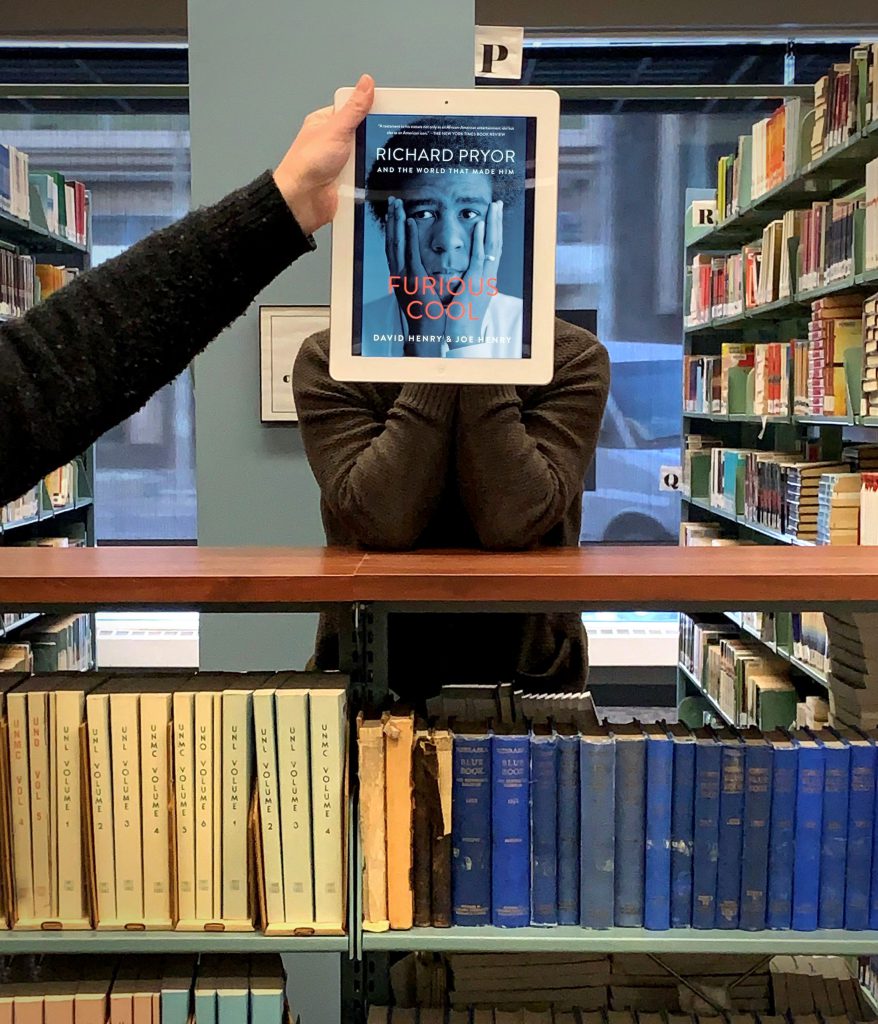
Laugh and cry with this week’s #BookFaceFriday, “Furious Cool: Richard Pryor and the World that Made Him” by David Henry and Joe Henry (Workman Publishing, 2013.) You can find this title in the Nebraska OverDrive Libraries curated collection “Black Voices and Black History,” created to help users find great reads to celebrate Black History Month. Its 195 titles consist of literature, fiction, nonfiction, autobiographies, and biographies.
“Richard Pryor lives again in the pages of Furious Cool by David and Joe Henry. With heart and grace and witnessing, they show us how and why this comic and tragic genius changed the culture of this country when he could not change himself. You may be meeting or rediscovering Pryor, but he’s likely to change you, too.” ―Gloria Steinem
Find this title and many more through Nebraska OverDrive. Libraries participating in the Nebraska OverDrive Libraries Group currently have access to a shared and growing collection of digital downloadable audiobooks and eBooks. 186 libraries across the state share the Nebraska OverDrive collection of 26,554 audiobooks, 32,935 eBooks, and 3,940 magazines. As an added bonus it includes 130 podcasts that are always available with simultaneous use (SU), as well as SU ebooks and audiobook titles that publishers have made available for a limited time. If you’re a part of it, let your users know about this great title, and if you’re not a member yet, find more information about participating in Nebraska Overdrive Libraries!
Love this #BookFace & reading? Check out our past #BookFaceFriday photos on the Nebraska Library Commission’s Facebook page!
Posted in Books & Reading, General
Tagged Biography, Black History, Black History Month, Black Voices, Book Covers, bookface, bookfacefriday, ebooks, nonfiction, OverDrive, Richard Pryor
Leave a comment
Friday Reads, Out of My Heart, by Sharon M. Draper
A year after the events in the March 2010 title, Out of My Mind, we join Melody during summer vacation. She wants to go to camp and has researched camps that are designed to provide experiences for children with disabilities. The Green Glades Therapeutic Recreational Camp – here comes Melody! Her experiences are believable, her apprehension as well as eagerness to go and to participate. The reader learns more about Melody and her feelings, hopes, and readiness for adventure.
For the first time in her life, Melody has friends, though it takes just a little while for her campmates to gel into true friends. Her parents, especially her mother, are reassured that each camper will have a camp counselor assigned to them all day (and night) every day. Melody was thinking she didn’t want to be monitored all the time, like her younger sister, she is 12 after all.
But then, during the week she is at camp, Melody faces several new situations. She is scared to get into the pool – what if she sinks? Trinity, her counselor, is there for her. They go for a ride around the lake on a pontoon boat – what if it takes on water? No problem, Trinity is there. But horses, they are huge, and how can Melody ride one? The camp has it all worked out and Trinity rides with her.
Some of the best things about this book are all the wonderful new experiences for Melody, the safety of the camp, and her new friends. Also, there are no mean girls or bullies. It may seem like a week of unbelievable opportunities – but there are camps like this around the country. Readers who wanted to know what happened next for Melody, after the first book, will be surprised and happy for Melody’s first camp experience.
Draper, Sharon M. Out of My Heart. Atheneum Books for Young Readers, 2021. ISBN 978-1-6659-0216-8.
Posted in Books & Reading, Youth Services
Tagged E. J. Beaton, Friday Reads, High Fantasy
Leave a comment
Friday Reads: No One is Talking About This by Patricia Lockwood
They kept raising their hands excitedly to high-five, for they had discovered something even better than being soulmates: that they were exactly, and happily, and hopelessly, the same amount of online (118).
To be “Online” is to immediately call your girlfriend when researching the author of the book you read and find out, to your shrieking delight, that the author also the author of The Miette Tweet. “No way!” Thought I. “She wrote The Miette Tweet!?” shrieked my girlfriend. We knew her! We knew her before she wrote this book — and of course she wrote this book! And if that experience of discovery (and the parasocial feelings it triggered) wasn’t in some sort of spirit of No One is Talking About This, I’m not sure what else to say.
What I wanted to read was a tragedy, and a tragedy from the present moment. I have been trying to work my way through The Iliad (trans. Caroline Alexander) and its gravity was too much; Memorial: A Version of Homer’s Iliad by Alice Oswald was better, but it was still too distant from what I felt now. When the reviews for No One is Talking About This told me that Part One was hilarious (or incomprehensible nonsense, depending on how “Online” one was), but that Part Two would cleave your heart in half and leave you unseamed, I dove right in.
No One is Talking About This is a stream-of-consciousness series of “portal entries” (read: Tweets) that follow an unnamed woman who becomes famous for the viral hit of “Can a dog be twins?” Elevated into the comedic spotlight and now an Influencer, she globe-trots to offer her Neodadistic philosophies. All the while, a sense of emptiness chases her. There’s a frantic pulse behind the words she throws out into the portal with her fellow portal dwellers — the familiar questions of “Are we just going to keep doing this till we die? … Are we in hell?” (12) There’s a feeling, which perhaps anyone who has been online too long has encountered, of trying to get one’s hands around the nonsense of everything and shake it so hard that something falls out, so that we can grab that thing and shake it and demand, “what does it mean? what does it all mean?”
Then, a text from her mother: “Something has gone wrong. How fast can you get here?” (119) And the whole of reality — the one that you cannot unplug from — comes crashing in, inescapable.
In the end, I wrestled slightly with my categorization of this book as a tragedy. But I think it holds. Here is a character, and her family, and what they go through is suffering (although it is not all suffering). But it does not end “happily,” in the way that there will be a miracle that stops the inevitable, that turns the ending; there is no deus ex machina. What I wanted from tragedy — what I think we all seek, from tragedy; why we watch Hamlet and Macbeth fret their petty hours on the stage, why we watch the war-gates of Troy open in celebration — is catharsis. To know how it will all end, to face it, to weep, and then to rise up again, wiser. Lighter. I wept through the ending of the book but I was not left hopeless and adrift.
If you are not chronically Online, you might struggle with Part One, but Lockwood’s prose and profundity throughout might guide you around the seeming nonsense (I myself have never been a dedicated Twitter user; I came of age on a different blue hellsite). If you don’t think No One is Talking About This would be your jam, at least please read about Lockwood’s cat, Miette, who is Twitter famous, and speaks in a British accent.
No One is Talking About This was shortlisted for both the 2021 Booker Prize and the 2021 Women’s Prize for Fiction. It is Lockwood’s debut novel.
Lockwood, Patricia. No One Is Talking about This. Riverhead Books, 2021.
#BookFaceFriday “Heard It in a Love Song” by Tracey Garvis Graves
Roses are red, violets are blue, this #BookFace is just for you!
As Valentine’s Day approaches, we wanted to share the love with this week’s BookFace! Check out “Heard It in a Love Song: A Novel” by Tracey Garvis Graves (Macmillan Audio, 2021) it’s available as an Audiobook in Nebraska OverDrive Libraries. Graves is a New York Times bestselling author, and her book, “The Girl He Used to Know,” is also available for readers in OverDrive.
“[Layla and Josh] are appealing, sensible characters who have good banter, and it is especially satisfying to watch Layla’s journey back to her rock-and-roll roots. [A] quiet, romantic novel that delves deeply into how relationships fall apart and how love can blossom again.”
―Booklist
Find this title and many more through Nebraska OverDrive. Libraries participating in the Nebraska OverDrive Libraries Group currently have access to a shared and growing collection of digital downloadable audiobooks and eBooks. 186 libraries across the state share the Nebraska OverDrive collection of 26,554 audiobooks, 32,935 eBooks, and 3,940 magazines. As an added bonus it includes 130 podcasts that are always available with simultaneous use (SU), as well as SU ebooks and audiobook titles that publishers have made available for a limited time. If you’re a part of it, let your users know about this great title, and if you’re not a member yet, find more information about participating in Nebraska Overdrive Libraries!
Love this #BookFace & reading? Check out our past #BookFaceFriday photos on the Nebraska Library Commission’s Facebook page!
What’s Up Doc? New State Agency Publications at the Nebraska Library Commission
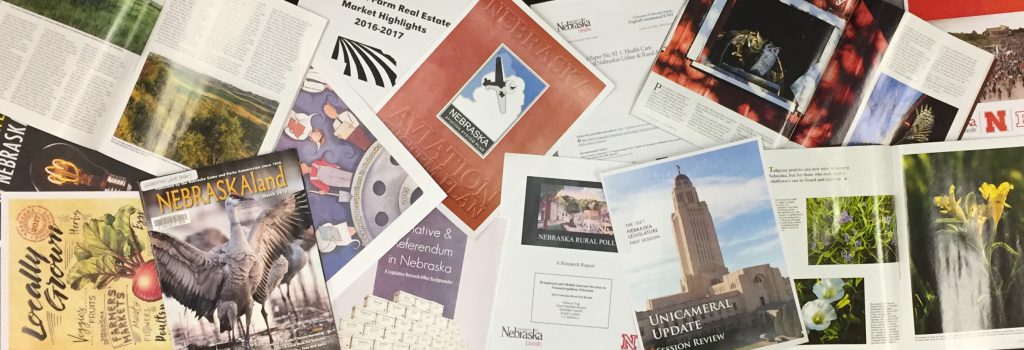
New state agency publications have been received at the Nebraska Library Commission for November and December, 2021. Included are reports from the Nebraska Department of Health and Human Services, the Nebraska Department of Transportation, the Nebraska Auditor of Public Accounts, the Nebraska Foster Care Review Board, and new books from the University of Nebraska Press, to name a few.
Most items, except the books from the University of Nebraska Press, are available for immediate viewing and printing by clicking on the highlighted link above, or directly in the .pdf below. You can read synopses of the books received from the University of Nebraska Press in the Book Briefs blogposts.
The Nebraska Legislature created the Nebraska Publications Clearinghouse in 1972 as a service of the Nebraska Library Commission. Its purpose is to collect, preserve, and provide access to all public information published by Nebraska state agencies. By law (State Statutes 51-411 to 51-413) all Nebraska state agencies are required to submit their published documents to the Clearinghouse. For more information, visit the Nebraska Publications Clearinghouse page, contact Mary Sauers, Government Information Services Librarian; or contact Bonnie Henzel, State Documents Staff Assistant.
Friday Reads, The Councillor, by E. J. Beaton
The Councillor, by E.J. Beaton, is high fantasy, with a Machiavellian twist, whose author’s first book was poetry. It adds to the flavor and fits the pageantry of this political fantasy. The world building is interesting—a lot is accepted as normal, such as men and women both being soldiers, business leaders, politicians, artisans. And Lysande, herself, the Palace Scholar, is a woman in service to the Queen of Elier, who is called the Steel Queen. The Queen herself picked Lysande out of an orphanage to become the Palace Scholar. And raised and befriended her from that point on. She also receives an envelope, making her the Councillor, on the death of the queen, to pick the next heir to the throne. A duty that leaves her very uneasy.
Not only are men and women equals, it even seems, in an understated way, women are expected to be the leaders. Lysande herself, as well as the queen, are taller than the commander of the castle force. The majority of the rulers of the nation had been queens, no few of them warriors. Primogeniture doesn’t seem to be the usual way of naming a successor. Sexuality is more fluid, attraction and romance is not confined to heterosexual conventions. And, all of this is in the background.
I very much enjoyed this fictional debut. So much of the world building is just part of the story. Lysande was in an orphanage as well as many other children, due to a long war freeing the populace from the threat of the “White Queen”, a magically endowed contender for the throne. Magic users are known as elementals, and are magically in power of an element, such as earth, fire, water. At one time in the distant past, the Elementals were the rulers of the country, until they were cast down. Leaving the populace very anti-magic, to the point of executing anyone suspected of being an Elemental. A point of the law Lysande has often debated with the queen.
Lysande is an interesting, flawed character, herself. She never seems to think it unusual that the queen should take so much interest in her although as the Royal Scholar, she is still a commoner. The nobility, here called silver bloods, certainly never let her forget her humble beginnings. She even keeps her lover, a friend from the orphanage, a secret, from everyone in the castle. Partially in compensation for her perceived shortcomings, she takes a magical drug, made of the scales of a chimera, an extinct magical beast. However, all her study of history of the reigns, wars, and kingdoms of the realm serve her well in dealing with the four city rulers who come to be considered for the throne.
The story is not a simple sword & sorcery, but a political, renaissance type tale, mostly told from a complex character’s viewpoint about the difficulty in deciding who should reign over the realm. There is even a sequel that I hope follows up on some of the dangling threads left at the end, and I am definitely looking forward to it.
The Councillor, by E. J. Beaton, DAW Books, Inc., 2021, ISBN978-0-7564-1699-7
#BookFaceFriday “The Magician’s Assistant” by Ann Patchett
We really pulled a rabbit out of the hat for this #BookFace!
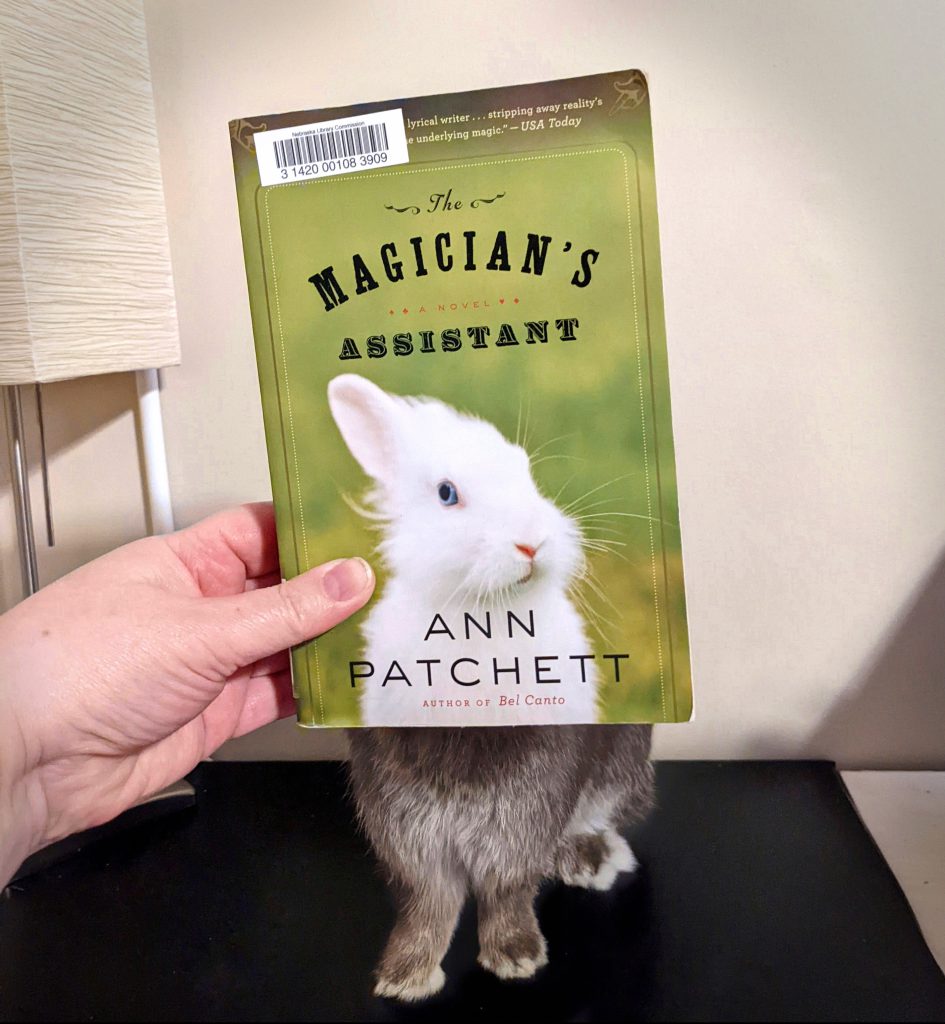
Now you see it, now you don’t! Our staff works hard to curate a great collection for all our book club users, including big-name authors that everyone is reading, like Ann Patchett and her novel “The Magician’s Assistant“ (Harcourt Brace, 1998.) We actually have seven Ann Patchett titles available in our Book Club Kit Collection. This week’s #BookFace, and Patchett’s other books, can be found on the NLC Book Club Kit webpage. The Book Club Kits service allows libraries and school librarians to “check out” multiple copies of a book without adding to their permanent collections, or budgets. Reserve one of our best selling authors for your book club today before another group says abracadabra and they disappear!
“Her finest novel . . . Patchett’s lush and suspenseful story is also a portrait of America, which– with its big dreams, vast spaces, and disparate realities lying side by side– proves to be the perfect place for miraculous transformations, including Sabine’s own.”—The New Yorker
This week’s model is the adorable Nutmeg, who is our Technology & Access Services Librarian, Allana Novotny’s sidekick.
Book Club Kits Rules for Use
- These kits can be checked out by the librarians of Nebraska libraries and media centers.
- Circulation times are flexible and will be based upon availability. There is no standard check-out time for book club kits.
- Please search the collection to select items you wish to borrow and use the REQUEST THIS KIT icon to borrow items.
- Contact the Information Desk at the Library Commission if you have any questions: by phone: 800/307-2665, or by email: Information Services Team
Love this #BookFace & reading? Check out our past #BookFaceFriday photos on the Nebraska Library Commission’s Facebook page!
Friday Reads: The Business of Building a Better World & Compassionate Careers
I’ll just put it out there: Income inequality disturbs me, and I have a special dislike for businesses that put profits before people. This book does too. The Business of Building a Better World outlines the changes that need to take place for businesses to support humanity, rather than treat people like human capital. To me, this statement seems obvious. People are human and want to know that the work they do everyday means something. Businesses should help solve climate change, gender and racial inequalities, environmental issues, oceans polluted by plastics, and more. Even if social change is not the core mission, businesses shouldn’t make the problem worse.
Yet this book is described as “a visionary look at the future of business”. As someone who has worked in nonprofits and libraries her whole life, I remain baffled that this concept is new. Luckily, this book isn’t the only one talking about how to change the business world for the better. I chose this book for this review because the title does not include “social change”, “social justice”, “manifesto”, or any number of other overwhelming or potentially triggering worlds.
Published recently in November 2021, this book acts as a summary, using stories and articles to show how businesses need to change to support the world. The book focuses on changes to leadership, from management practices to a shift in core values. Yet I read the book for a different reason.
I’ve been helping libraries build resources related to technology, skill-building, and the future of work. Like many, I realized that both leaders and employees need to change. Employees need to change the way they vet out employers and decide what to do for a living.
Look at the flip side in Compassionate Careers: Making a Living by Making a Difference, by Jeffrey W. Pryor. Part of the incentive for businesses to change is for employees to demand change and communicate the desire for work that makes the world better. By shifting the way we look at existing and future jobs, we can all make a difference.
We can’t have one side of the coin without the other. Leaders and employees need to work together. Neither book should be revolutionary. Nobody should bat an eye because the concepts are so obvious. People deserve to work under leadership that treats them like humans who are part of the wider world. Leaders should only be leaders if they understand what matters to people and how their organization can support the wider world.
Try to say it out loud: I deserve work that matters in the world. We all do. Our collective systems should support work that builds a better world. How did that feel? Could you get the words out? Did the words come naturally, or did your tongue feel thick with disbelief and anguish that future generations could have meaningful work while you did not?
Read The Business of Building a Better World and Compassionate Careers if you want the world to suck less in the future. As libraries continue to support job searches, career exploration, and the search for personal identity, maybe we help turn the tide for the better.
#BookFaceFriday “Everything for a Dog” by Ann M. Martin
Lassie, go get #BookFace!

Get the tissue box ready, because I don’t know about you, but I cannot read a book about dogs without the flood gates opening. I blame Old Yeller, and Where the Red Fern Grows, but let’s just face it, they’re called man’s best friend for a reason. If you and your book club are looking for a great read that will pull the heartstrings, check out “Everything for a Dog“ by Ann M. Martin (Square Fish, 2011.) This middle-grade read is all about a stray dog, and a couple of boys who find their way to each other just when they need it. The Nebraska Library Commission’s Book Club Kit Collection is available and easily accessible for all libraries and schools across the state. This service allows libraries and school librarians to “check out” multiple copies of a book without adding to their permanent collections, or budgets. This week’s #BookFace can be found on the NLC Book Club Kit webpage. And if dogs just aren’t your thing, you can find book titles about all kinds of other animals, from cats to pandas, by searching the Book Club Kits collection’s “Animals Genre”. Don’t forget, book clubs aren’t just for adults, we have a wide selection of middle grade and YA titles available.
“[Martin] artfully alternates and gradually weaves together threads from the canine and human tales until the three stories converge in time and space into a completely heartwarming and satisfying finale. Essential fare for fans of the perfectly crafted canine tale.”—Kirkus, starred review
Book Club Kits Rules for Use
- These kits can be checked out by the librarians of Nebraska libraries and media centers.
- Circulation times are flexible and will be based upon availability. There is no standard check-out time for book club kits.
- Please search the collection to select items you wish to borrow and use the REQUEST THIS KIT icon to borrow items.
- Contact the Information Desk at the Library Commission if you have any questions: by phone: 800/307-2665, or by email: Information Services Team
Love this #BookFace & reading? Check out our past #BookFaceFriday photos on the Nebraska Library Commission’s Facebook page!
Book Briefs: New University of Nebraska Press Books at the Nebraska Publications Clearinghouse
The Nebraska Publications Clearinghouse receives documents every month from all Nebraska state agencies, including the University of Nebraska Press (UNP). Each month we will be showcasing the UNP books that the Clearinghouse receives. UNP books, as well as all Nebraska state documents, are available for checkout by libraries and librarians for their patrons.
Here are the UNP books the Clearinghouse received in November and December 2021:
Borrowing From Our Foremothers : Reexamining the Women’s Movement through Material Culture by Amy Helene Forss
Borrowing from Our Foremothers offers a panorama of women’s struggles through artifacts to establish connections between the generations of women’s right activists. In a thorough historical retelling of the women’s movement from 1848 to 2017, Amy Helene Forss focuses on items borrowed from our innovative foremothers, including cartes de visite, clothing, gavels, sculptures, urns, service pins, and torches.
Framing the material culture items within each era’s campaigns yields a wider understanding of the women’s metanarrative. Studded with relics and ninety-nine oral histories from such women as Rosalynn Carter to Pussyhat Project cocreator Krista Suh, this book contributes an important and illuminating analysis necessary for understanding the development of feminism as well as our current moment.
Cinematic Comanches : The Lone Ranger in the Media Borderlands by Dustin Tahmahkera ; Series: Indigenous Films
For centuries Comanches have captivated imaginations. Yet their story in popular accounts abruptly stops with the so-called fall of the Comanche empire in 1875, when Quanah Parker led Comanches onto the reservation in southwestern Oklahoma. In Cinematic Comanches, the first tribal-specific history of Comanches in film and media, Parker descendant Dustin Tahmahkera examines how Comanches represent themselves and are represented by others in recent media. Telling a story of Comanche family and extended kin and their relations to film, Tahmahkera reframes a distorted and defeated history of Comanches into a vibrant story of cinematic traditions, agency, and cultural continuity.
Co-starring a long list of Comanche actors, filmmakers, consultants, critics, and subjects, Cinematic Comanches moves through the politics of tribal representation and history to highlight the production of Comanchería cinema. From early silent films and 1950s Westerns to Disney’s The Lone Ranger and the story of how Comanches captured its controversial Comanche lead Johnny Depp, Tahmahkera argues that Comanche nationhood can be strengthened through cinema. Tahmahkera’s extensive research includes interviews with elder LaDonna Harris, who adopted Depp during filming in one of the most contested films in recent Indigenous cinematic history. In the fragmented popular narrative of the rise and fall of Comanches, Cinematic Comanches calls for considering mediated contributions to the cultural resurgence of Comanches today.
The Complete Letters of Henry James, 1884-1886, Volume 2 Edited by Michael Anesko and Greg W. Zacharias, Katie Sommer, Associate Editor ; Series: The Complete Letters of Henry James
This second volume of The Complete Letters of Henry James, 1884–1886 contains 156 letters, of which 111 are published for the first time, written from December 24, 1885, to December 31, 1886. These letters mark Henry James’s ongoing efforts to care for his sister, develop his work, strengthen his professional status, build friendships, engage timely political and economic issues, and maximize his income. James details work on his midcareer novel The Princess Casamassima and announces plans for The Tragic Muse. This volume opens with James’s engagement with friends in Britain and France and concludes with his arrival in Italy for a six-month visit.
Country of the Cursed and the Driven : Slavery and the Texas Borderlands by Paul Barba
In eighteenth- and nineteenth-century Texas—a hotly contested land where states wielded little to no real power—local alliances and controversies, face-to-face relationships, and kin ties structured personal dynamics and cross-communal concerns alike. Country of the Cursed and the Driven brings readers into this world through a sweeping analysis of Hispanic, Comanche, and Anglo-American slaving regimes, illuminating how slaving violence, in its capacity to bolster and shatter families and entire communities, became both the foundation and the scourge, the panacea and the curse, of life in the borderlands.
As scholars have begun to assert more forcefully over the past two decades, slavery was much more diverse and widespread in North America than previously recognized, engulfing the lives of Native, European, and African descended people across the continent, from the Atlantic to the Pacific and from Canada to Mexico. Paul Barba details the rise of Texas’s slaving regimes, spotlighting the ubiquitous, if uneven and evolving, influences of colonialism and anti-Blackness.
By weaving together and reframing traditionally disparate historical narratives, Country of the Cursed and the Driven challenges the common assumption that slavery was insignificant to the history of Texas prior to Anglo American colonization, arguing instead that the slavery imported by Stephen F. Austin and his colonial followers in the 1820s found a comfortable home in the slavery-stained borderlands, where for decades Spanish colonists and their Comanche neighbors had already unleashed waves of slaving devastation.
Cree and Christian : Encounters and Transformations by Clinton N. Westman
Cree and Christian develops and applies new ethnographic approaches for understanding the reception and indigenization of Christianity, particularly through an examination of Pentecostalism in northern Alberta. Clinton N. Westman draws on historical records and his own long-term ethnographic research in Cree communities to explore questions of historical change, cultural continuity, linguistic practices in ritual, and the degree to which Indigenous identity is implicated by Pentecostal commitments. Such complexity calls for constant negotiation and improvisation, key elements of Pentecostal worship and speech strategies that have been compared to jazz modes.
The historical sweep of Cree and Christian considers the dynamics of Pentecostal conversion in relation to the strengths and weaknesses of other denominations and the underlying foundation of Cree cosmological worldviews. Pentecostalism has remained open to recognizing the power of spirits while also benefiting from its own essential flexibility. Pentecostals often seek to gain a degree of temporal and spiritual autonomy and authority that may not have seemed possible under previous Christian practices or Cree traditions.
Cree and Christian is the first book to provide a fully historicized account of Indigenous Pentecostalism, connecting contemporary religious practices and pluralism to historical Pentecostal, Evangelical, Catholic, and mainstream Protestant missions since the nineteenth century. By tracing religious practices and discourses since the 1890s, Westman paints a picture of the transformations and encounters from the earliest conversions (and resistance) to today’s pluralistic, mediatized, and bilingual religious landscape.
Dervish Dust : The Life and Words of James Coburn by Robyn L. Coburn
Dervish Dust is the authorized biography of “cool cat” actor James Coburn, covering his career, romances, friendships, and spirituality. Thoroughly researched with unparalleled access to Coburn’s friends and family, the book’s foundation is his own words in the form of letters, poetry, journals, interviews, and his previously unpublished memoirs, recorded in the months before his passing.
Dervish Dust details the life of a Hollywood legend that spanned huge changes in the entertainment and filmmaking industry. Coburn grew up in Compton after his family moved from Nebraska to California during the Great Depression. His acting career began with guest character roles in popular TV series such as The Twilight Zone, Bonanza, and Rawhide. In the 1960s Coburn was cast in supporting roles in such great pictures as The Magnificent Seven, Charade, and The Great Escape, and he became a leading man with the hit Our Man Flint. In 1999 Coburn won an Academy Award for his performance in Affliction. Younger viewers will recognize him as the voice of Henry Waternoose, the cranky boss in Monsters, Inc., and as Thunder Jack in Snow Dogs.
An individualist and deeply thoughtful actor, Coburn speaks candidly about acting, show business, people he liked, and people he didn’t, with many behind-the-scenes stories from his work, including beloved classics, intellectually challenging pieces, and less well-known projects. His films helped dismantle the notorious Production Code and usher in today’s ratings system.
Known for drum circles, playing the gong, and participating in LSD research, Coburn was New Age before it had a name. He brought his motto, Go Bravely On, with him each time he arrived on the set in the final years of his life, when he did some of his best work, garnering the admiration of a whole new generation of fans.
Dirty Knowledge : Academic Freedom in the Age of Neoliberalism by Julia Schleck ; Series: Provocations
Dirty Knowledge explores the failure of traditional conceptions of academic freedom in the age of neoliberalism. While examining and rejecting the increasing tendency to view academic freedom as a form of free speech, Julia Schleck highlights the problem of basing academic freedom on employment protections like tenure at a time when such protections are being actively eliminated through neoliberalism’s preference for gig labor. The argument traditionally made for such protections is that they help produce knowledge “for the public good” through the protected isolation of the Ivory Tower, where “pure” knowledge is sought and disseminated.
In contrast, Dirty Knowledge insists that academic knowledge production is and has always been “dirty,” deeply involved in the debates of its time and increasingly permeated by outside interests whose financial and material support provides some research programs with significant advantages over others. Schleck argues for a new vision of the university’s role in society as one of the most important forums for contending views of what exactly constitutes a societal “good,” warning that the intellectual monoculture encouraged by neoliberalism poses a serious danger to our collective futures and insisting on deliberate, material support for faculty research and teaching that runs counter to neoliberal values.
The Forgotten Botanist : Sara Plummer Lemmon’s Life of Science and Art by Wynne Brown
The Forgotten Botanist is the account of an extraordinary woman who, in 1870, was driven by ill health to leave the East Coast for a new life in the West—alone. At thirty-three, Sara Plummer relocated to Santa Barbara, where she taught herself botany and established the town’s first library. Ten years later she married botanist John Gill Lemmon, and together the two discovered hundreds of new plant species, many of them illustrated by Sara, an accomplished artist. Although she became an acknowledged botanical expert and lecturer, Sara’s considerable contributions to scientific knowledge were credited merely as “J.G. Lemmon & wife.”
The Forgotten Botanist chronicles Sara’s remarkable life, in which she and JG found new plant species in Arizona, California, Oregon, and Mexico and traveled throughout the Southwest with such friends as John Muir and Clara Barton. Sara also found time to work as a journalist and as an activist in women’s suffrage and forest conservation.
The Forgotten Botanist is a timeless tale about a woman who discovered who she was by leaving everything behind. Her inspiring story is one of resilience, determination, and courage—and is as relevant to our nation today as it was in her own time.
Marianne Is Watching : intelligence, Counterintelligence, and the Origins of the French Surveillance State by Deborah Bauer ; Series: Studies in War, Society, and the Military
Professional intelligence became a permanent feature of the French state as a result of the army’s June 8, 1871, reorganization following France’s defeat in the Franco-Prussian War. Intelligence practices developed at the end of the nineteenth century without direction or oversight from elected officials, and yet the information gathered had a profound influence on the French population and on pre–World War I Europe more broadly.
In Marianne Is Watching Deborah Bauer examines the history of French espionage and counterespionage services in the era of their professionalization, arguing that the expansion of surveillance practices reflects a change in understandings of how best to protect the nation. By leading readers through the processes and outcomes of professionalizing intelligence in three parts—covering the creation of permanent intelligence organizations within the state; the practice of intelligence; and the place of intelligence in the public sphere—Bauer fuses traditional state-focused history with social and cultural analysis to provide a modern understanding of intelligence and its role in both state formation and cultural change.
With this first English-language book-length treatment of the history of French intelligence services in the era of their inception, Bauer provides a penetrating study not just of the security establishment in pre–World War I France but of the diverse social climate it nurtured and on which it fed.
The Power of Scenery : Frederick Law Olmstead and the Origin of National Parks ; by Dennis Drabelle
Wallace Stegner called national parks “the best idea we ever had.” As Americans celebrate the 150th anniversary of Yellowstone, the world’s first national park, a question naturally arises: where did the idea for a national park originate? The answer starts with a look at pre-Yellowstone America. With nothing to put up against Europe’s cultural pearls—its cathedrals, castles, and museums—Americans came to realize that their plentitude of natural wonders might compensate for the dearth of manmade attractions. That insight guided the great landscape architect Frederick Law Olmsted as he organized his thoughts on how to manage the wilderness park centered on Yosemite Valley, a state-owned predecessor to the national park model of Yellowstone. Haunting those thoughts were the cluttered and carnival-like banks of Niagara Falls, which served as an oft-cited example of what should not happen to a spectacular natural phenomenon.
Olmsted saw city parks as vital to the pursuit of happiness and wanted them to be established for all to enjoy. When he wrote down his philosophy for managing Yosemite, a new and different kind of park, one that preserves a great natural site in the wilds, he had no idea that he was creating a visionary blueprint for national parks to come. Dennis Drabelle provides a history of the national park concept, adding to our understanding of American environmental thought and linking Olmsted with three of the country’s national treasures. Published in time to celebrate the 150th anniversary of Yellowstone National Park on March 1, 2022, and the 200th birthday of Frederick Law Olmsted on April 26, 2022, The Power of Scenery tells the fascinating story of how the national park movement arose, evolved, and has spread around the world.
A Religious history of the American GI in World War II by G. Kurt Piehler ; Series: Studies in War, Society, and the Military
A Religious History of the American GI in World War II breaks new ground by recounting the armed forces’ unprecedented efforts to meet the spiritual needs of the fifteen million men and women who served in World War II. For President Franklin D. Roosevelt and many GIs, religion remained a core American value that fortified their resolve in the fight against Axis tyranny. While combatants turned to fellow comrades for support, even more were sustained by prayer. GIs flocked to services, and when they mourned comrades lost in battle, chaplains offered solace and underscored the righteousness of their cause. This study is essential reading for anyone seeking to understand the social history of the American GI during World War II.
Drawing on an extensive range of letters, diaries, oral histories, and memoirs, G. Kurt Piehler challenges the conventional wisdom that portrays the American GI as a nonideological warrior. American GIs echoed the views of FDR, who saw a Nazi victory as a threat to religious freedom and recognized the antisemitic character of the regime. Official policies promoted a civil religion that stressed equality between Protestantism, Roman Catholicism, and Judaism. Many chaplains embraced this tri-faith vision and strived to meet the spiritual needs of all servicepeople regardless of their own denomination. While examples of bigotry, sectarianism, and intolerance remained, the armed forces fostered the free exercise of religion that promoted a respect for the plurality of American religious life among GIs.
Scars of War : The Politics of Paternity and Responsibility for the Amerasians of Vietnam by Sabrina Thomas ; Borderlands and Transcultural Studies
Scars of War examines the decisions of U.S. policymakers denying the Amerasians of Vietnam—the biracial sons and daughters of American fathers and Vietnamese mothers born during the Vietnam War—American citizenship. Focusing on the implications of the 1982 Amerasian Immigration Act and the 1987 Amerasian Homecoming Act, Sabrina Thomas investigates why policymakers deemed a population unfit for American citizenship, despite the fact that they had American fathers.
Thomas argues that the exclusion of citizenship was a component of bigger issues confronting the Nixon, Ford, Carter, and Reagan administrations: international relationships in a Cold War era, America’s defeat in the Vietnam War, and a history in the United States of racially restrictive immigration and citizenship policies against mixed-race persons and people of Asian descent.
Now more politically relevant than ever, Scars of War explores ideas of race, nation, and gender in the aftermath of the Vietnam War. Thomas exposes the contradictory approach of policymakers unable to reconcile Amerasian biracialism with the U.S. Code. As they created an inclusionary discourse deeming Amerasians worthy of American action, guidance, and humanitarian aid, federal policymakers simultaneously initiated exclusionary policies that designated these people unfit for American citizenship.
Time in the Wilderness : the formative years of John “Black Jack” Pershing in the American West by Time McNeese
Most Americans familiar with General John J. “Black Jack” Pershing know him as the commander of American Expeditionary Forces in Europe during the latter days of World War I. But Pershing was in his late fifties by then. Pershing’s military career began in 1886, with his graduation from West Point and his first assignments in the American West as a horsebound cavalry officer during the final days of Apache resistance in the Southwest, where Arizona and New Mexico still represented a frontier of blue-clad soldiers, Native Americans, cowboys, rustlers, and miners.
But the Southwest was just the beginning of Pershing’s West. He would see assignments over the years in the Dakotas, during the Ghost Dance uprising and the battle of Wounded Knee; a posting at Montana’s Fort Assiniboine; and, following his years in Asia, a return to the West with a posting at the Presidio in San Francisco and a prolonged assignment on the Mexican-American border in El Paso, which led to his command of the Punitive Expedition, tasked with riding deep into Northern Mexico to capture the pistolero Pancho Villa.
During those thirty years from West Point to the Western Front, Pershing had a colorful and varied military career, including action during the Spanish-American War and lengthy service in the Philippines. Both were new versions of the American frontier abroad, even as the frontier days of the American West were closing.
All of Pershing’s experiences in the American West prepared him for his ultimate assignment as the top American commander during the Great War. If the American frontier and, more broadly, the American West provided a cauldron in which Americans tested themselves during the nineteenth century, they did the same for John Pershing. His story was a historical Western.
A Year With Martin Buber : Wisdom on the Weekly Torah Portion by Rabbi Dennis S. Ross ; Series: JPS Daily Inspiration
The teachings of the great twentieth-century Jewish thinker Martin Buber empower us to enter a spiritual dimension that often passes unnoticed in the daily routine. In A Year with Martin Buber, the first Torah commentary to focus on his life’s work, we experience the fifty-four weekly Torah portions and eleven Jewish holidays through Buber’s eyes.
While best known for the spiritual concept of the I-Thou relationship between people, Buber graced us with other fundamentals, including Over Against, Afterglow, Will and Grace, Reification, Inclusion, and Imagine the Real. And his life itself—including his defiance of the Nazis, his call for Jewish-Arab reconciliation, and his protest of Adolf Eichmann’s execution—modeled these teachings in action.
Rabbi Dennis S. Ross demonstrates Buber’s roots in Jewish thought and breaks new ground by explaining the broader scope of Buber’s life and work in a clear, conversational voice. He quotes from the weekly Torah portion; draws lessons from Jewish commentators; and sets Buber’s related words in context with Buber’s remarkable life story, Hasidic tales, and writing. A wide variety of anecdotal illustrations from Buber as well as the author’s life encourages each of us to “hallow the everyday” and seek out spirituality “hiding in plain sight.”
**Synopses courtesy of University of Nebraska Press.
ALA Announces the 2022 Youth Media Awards!
The Newbery Award winner is The Last Cuentista by Donna Barba Higuera, (I have put it on hold at the library). Four titles were named Newbery Honor Books. The Newbery Award is celebrating its 100th Anniversary this year.
The Caldecott Award winner is Watercress, illustrated by Jason Chin and written by Andrea Wang, which also won the Asian/Pacific American Award for Literature in the picture book category, and was named one of the Newbery Honor Books. I just read it last week! It was heartfelt with amazing illustrations. Four titles were named Caldecott Honor Books.
Nikki Grimes was awarded the Coretta Scott King – Virginia Hamilton Award for Lifetime Achievement, and A. S. King was awarded the Margaret A. Edwards Award for lifetime achievement in writing for young adults.
To learn all the titles that were recognized on January 24th during the ALA Youth Media Awards webcast, just visit this news release.
Posted in Books & Reading, Youth Services
Tagged authority control, Cataloger, cataloging, cataloging certificate, education
Leave a comment
Friday Reads: The House in the Cerulean Sea” by T.J. Klune
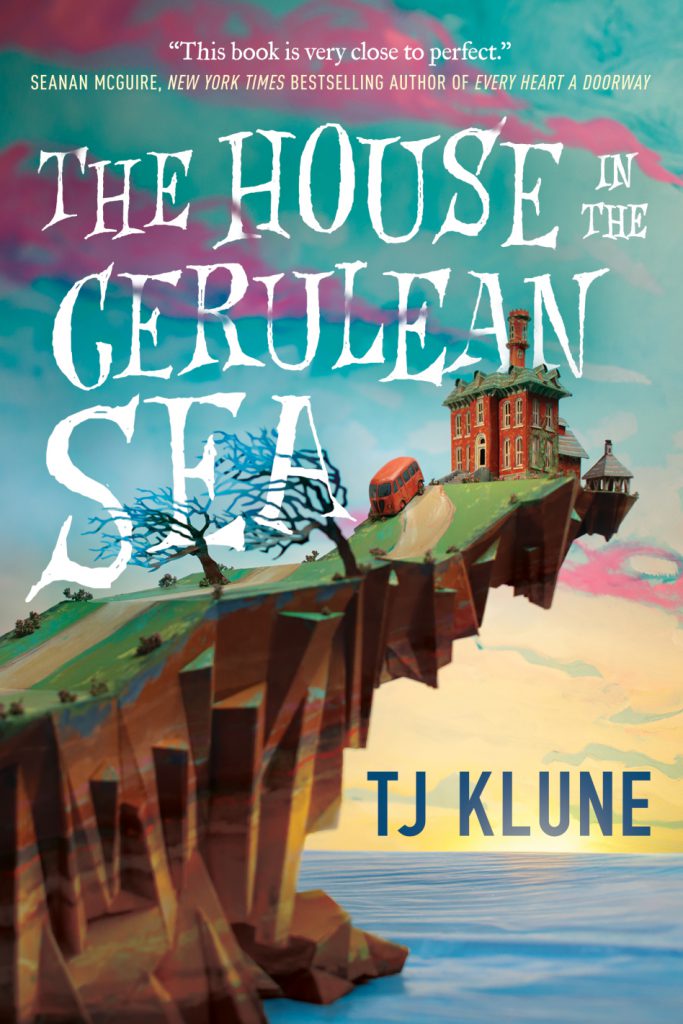
I’ve probably said it before but if you’re anything like me reading has recently become kind of a chore. After recently getting a dedicated e-reader the total volume of my reading has increased, just from the sheer volume of titles now available to me at the click of a button, but I was still having a hard time finding a book that I thought deserved particular attention. That is until I found this week’s book.
“The House in the Cerulean Sea” is the sweetest little novel, and a surprisingly quick read, written by T.J. Klune. It takes place in a fantasy world, not unlike earth, that follows the life of one Linus Baker, a caseworker for the Department In Charge of Magical Youth. At DICOMY his job is to evaluate the orphanages the department runs when situations arise, including the facilities and the masters in charge of each one. Although not uncaring Linus is proud of his ability to do his work by the book, literally a 900+ page volume entitled “Rules and Regulations” that he purchased from the company and lugs with him wherever he goes. It is because of this attention to the rules that Linus is given a special assignment by Extremely Upper Management to evaluate one of their more extraordinary orphanages.
An orphaned gnome, who keeps the most beautiful garden, and a shy young man who, when overtaken by extreme anxiety, turns into a Pomeranian are just a few of the children that give this orphanage its life and color, a very different setting than Linus’s usual drab gray life. Over the month that Linus has been given to evaluate the home, he is confronted with how living by the book can not only be restrictive of life and all it has to offer but may end up being detrimental, too.
If you’re looking for a cozy read that makes you think a bit “The House in the Cerulean Sea” fits the bill perfectly. I’ve heard good things about his most recent book “Under the Whispering Door” and it’s now on the top of my to-be-read book pile. Could this mark the end of my reading slump?
Klune, T.J. The House in the Cerulean Sea. New York: Tor, 2020.
#BookFaceFriday “The Perfume Thief” by Timothy Schaffert
It’s a One World One #BookFaceFriday !
We wanted to give a shout-out to Timothy Schaffert, and his latest book, “The Perfume Thief” (Doubleday, 2021) it was recently selected by Penguin Random House International for the One World One Book program! The novel is one of only two titles selected annually for this global promotion. You can find out more about this honor and the author in Nebraska Today’s article “Schaffert’s ‘Perfume Thief’ Earns International Recognition,” published on January 19th. We are so proud to have Nebraska literature represented on a global scale, congrats to Timothy Schaffert! This historical fiction novel, set in Paris at the beginning of WWII, is one of six Schaffert works NLC has available in our Book Club Kit Collection! This week’s #BookFace and Timothy Schaffert’s other books can be found on the NLC Book Club Kit webpage. This service allows libraries and school librarians to “check out” multiple copies of a book without adding to their permanent collections, or budgets. Get in on the One World One Book fun and reserve “The Perfume Thief” for your book club!
“[An] intoxicating blend of decadence and intrigue . . . Schaffert’s evocation of Paris and its wartime demimonde is sensual and alluring, but the heart of his novel is Clementine’s demonstration through her own adventures of how every life is its own heady perfume. . . This is a rich and rewarding tale, as original and unique as the handiwork of its eponymous character.”
— Publishers Weekly (starred review)
Book Club Kits Rules for Use
- These kits can be checked out by the librarians of Nebraska libraries and media centers.
- Circulation times are flexible and will be based upon availability. There is no standard check-out time for book club kits.
- Please search the collection to select items you wish to borrow and use the REQUEST THIS KIT icon to borrow items.
- Contact the Information Desk at the Library Commission if you have any questions: by phone: 800/307-2665, or by email: Information Services Team
Love this #BookFace & reading? Check out our past #BookFaceFriday photos on the Nebraska Library Commission’s Facebook page!
Posted in Books & Reading, General
Tagged Book Club Kits, bookface, bookfacefriday, Nebraska Author, One World One Book, Reading, Timothy Schaffert
Leave a comment



